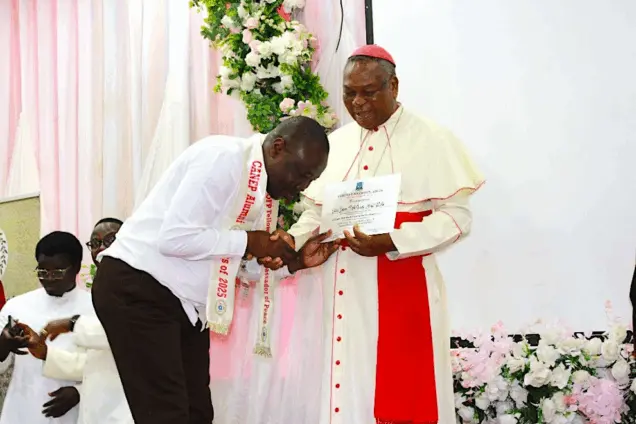The acquittal of Timothy Omotoso, a Nigerian televangelist, on charges of rape, sexual exploitation, and human trafficking, ignited a firestorm of controversy in South Africa. After spending eight years in jail, Omotoso walked free, only to face a renewed legal battle and public outrage. The saga took another turn with the announcement of his planned departure from the country, swiftly followed by prosecutors’ decision to appeal the acquittal and investigate the handling of the initial case.
Timothy Omotoso, head of the Jesus Dominion International (JDI) church, found himself at the center of a legal storm that has captivated and divided public opinion. This article explores the intricacies of Omotoso’s acquittal, the explosive public reaction, the state’s resolve to reopen the case, and his subsequent departure from South Africa, drawing from factual reporting.
The journey toward Timothy Omotoso’s freedom began with a court ruling that found him not guilty on 32 counts, including the most severe charges of rape and human trafficking. The judge, in his assessment, pointed to the mishandling of the case by the prosecution as a significant factor contributing to the acquittal.
The court’s decision unleashed a wave of anger and disappointment across South Africa. Local media outlets and advocacy groups echoed the sentiments of many who felt justice had not been served. The sensitivity surrounding the case, given the nature of the charges and the alleged victims involved, amplified the public’s distress. The news of Timothy Omotoso’s freedom was not received quietly; it sparked a fierce debate about the effectiveness of the justice system and its ability to protect vulnerable individuals.
Media outlets such as SABC and Newsroom Afrika closely followed the developments, capturing images of Omotoso at the airport, ready to leave the country. Headlines reflected the nation’s divided response, questioning the outcome and the circumstances surrounding his departure.
In response to the widespread discontent, the National Prosecuting Authority (NPA) announced its decision to appeal Timothy Omotoso’s acquittal. According to an official statement, “The NPA takes the view that there are reasonable prospects of a successful appeal despite the complexities of the legal process.” This decision signaled the state’s commitment to pursuing justice, despite the initial setback. Further adding to the complexities, an investigation was launched into the team that handled the initial case, raising questions about potential misconduct or negligence in the prosecution’s approach.
Adding another layer to the unfolding drama, Omotoso was rearrested on immigration charges on May 10, fueling speculation about the government’s intention to deport him. However, the magistrates court ordered his release, citing the 48-hour detention limit without formal charges, a move that further complicated the legal landscape surrounding Timothy Omotoso.
Timothy Omotoso is the head of the Jesus Dominion International (JDI) church, which has its headquarters in Durban, South Africa. According to the South African government, the JDI also has branches in Nigeria and Israel. The legal proceedings have inevitably cast a shadow over the church’s reputation and operations. While official statements from the church have been scarce, the case has undoubtedly impacted its followers and its public image.
According to reports from SABC and Newsroom Afrika, Timothy Omotoso planned to depart from Johannesburg’s OR Tambo Airport on a Sunday. A transport ministry official told AFP that Omotoso did not require any special clearance to leave the country. Despite this, the exact timing of his flight remained unclear, leaving many questions unanswered.
In summary, the Timothy Omotoso case, marked by his initial acquittal, the subsequent public outcry, the state’s decision to reopen the case, and his departure from South Africa, highlights the complexities and sensitivities inherent in legal proceedings involving serious allegations. As the legal challenges continue, the potential for a future trial remains, underscoring the ongoing nature of this contentious issue. The Timothy Omotoso case remains a complex and highly sensitive issue in South Africa, with significant legal and social implications that are ongoing.
Image Source: MYJOYONLINE






















